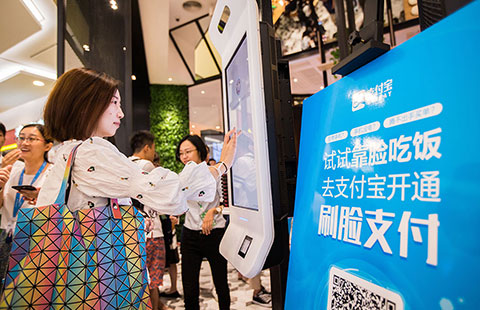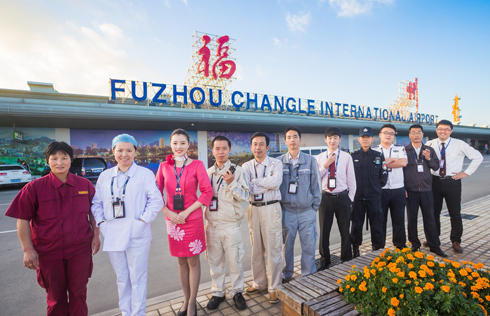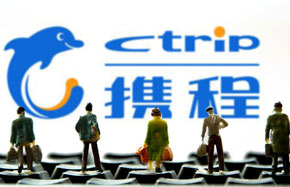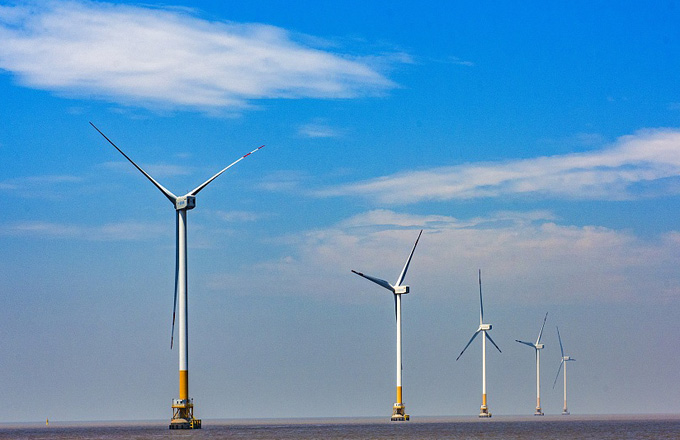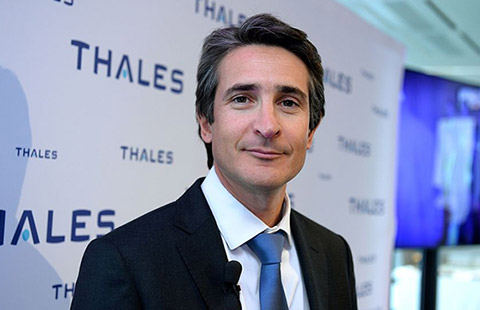Forum provides venue for brainstorming
He also suggested that China's local governments should be allowed to issue municipal bonds to fund their projects, instead of relying on land sale revenue.
Cai Hongbin, dean of the Guanghua School of Management at Peking University, has noticed a pattern in the way people respond to the stiff challenges facing modern China: "Those who come often to China are pretty optimistic. Those who rarely or never come say China's economy is collapsing."
McKinsey & Co's Global Managing Director Dominic Barton said as China's urbanization progresses, the numbers coming from the countryside may be slowing. But China is still just at "the end of the beginning" of its urban transformation.
|
Pandas entertain guests of the 2013 Fortune Global Forum in Chengdu on June 7. The event was fruitful for the city. According to the Chengdu government, at least 74 business deals were signed between the city and Fortune Global 500 companies or large multinationals, with the combined value surpassing 112 billion yuan ($18.26 billion). [Photo / Provided to China Daily] |
New business model
One of the hot topics in the forum was balancing the need for economic expansion while encouraging sustainable innovation. How do companies create a new set of tools that will permit economic growth without putting too much stress on the environment?
Fu Chengyu, chairman of Sinopec, one of the largest petroleum corporations in the world, said China has huge potential for improving energy efficiency.
"For China, one thing is unique: that is, over 70 percent of its energy consumption is coal-based or coal-derived. And that energy structure will remain basically unchanged in the coming 20 to 30 years.
"So in this context, our responsibility is how to deliver clean coal, how can we deliver clean coal-based energy, and how to convert coal into other energy sources in a clean manner," Fu said.
Jeffrey Immelt, the CEO of General Electric Co, said GE basically has a bet on every technology: "We're in solar. We're in wind. We're in coal. We're in gas. And we're driving technology around all those."
"The two biggest surprises, I would say, over the last decade are no one would have ever guessed that natural gas would be three or four dollars in the United States, but it is. I can't look at one GE pro forma that ever predicted that. But that is a massive game changer driven by technology."
There was also intense discussion of the emerging business models and rules around the world and how companies adapt to it.
Yang Yuanqing, chairman and CEO of Lenovo Group Ltd, one of the largest personal computer makers in the world, said Lenovo has a strategy to become not just a PC player, but also a "PC-plus player".
"We must win in the tablet area, in the smartphone area. So now everything goes mobile," he said.
Muhtar Kent, chairman and CEO of The Coca-Cola Co, said we are seeing shifts in the retail landscape in terms of how consumers shop.
"We see shifts in mobility, shifts in consumer trends, consumption patterns everywhere around the world. And where they stay, where they go to be entertained, how they want to be entertained, what they want to drink, what they want to eat, all of those things are changing," he said "The important thing is to understand them, and to be able to actually be ahead of those trends."







